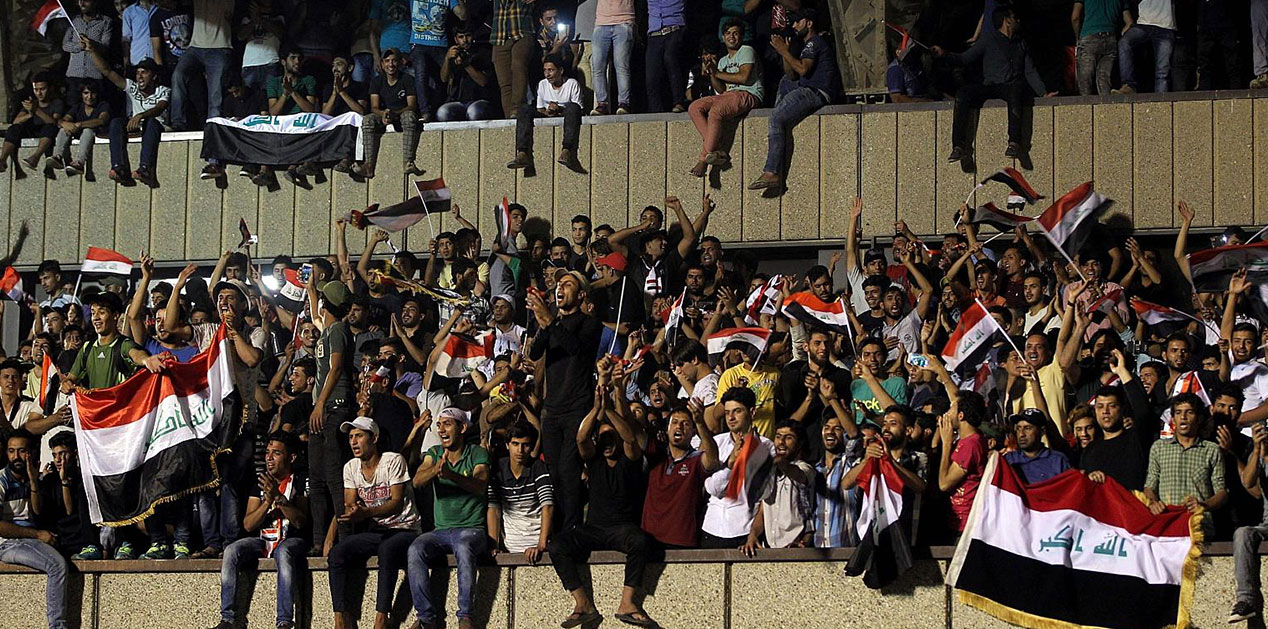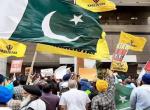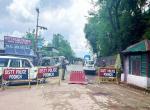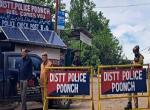Iraq is headed towards a political meltdown. This is because the governments which were formed after Saddam Hussein’s fall in 2003 failed to meet the expectations of the citizens, particularly the minorities.
The country today is torn apart by corruption and dysfunctions, alongside the decades-old problem of sectarianism, factionalism and armed conflict.
The new Iraq is still struggling to bring government accountability as well as equal distribution of power. Now, for more than a month, the Iraqi parliament failed to bring a new cabinet as there are not enough lawmakers on the floor to vote in support of this move. As a result, the anger, building up for the past few weeks erupted with great fury resulting in the storming of the heavily-fortified Green Zone, also home to the parliament, ministries and foreign embassies, in Baghdad, on 30 April.
The mastermind behind this alarming development is firebrand Shia cleric Muqtada al-Sadr, who has been demanding political reforms and reshuffling of the cabinet in the Iraqi government. The protesters called for the inclusion of ministers who would not be beholden to sectarian political parties. Al-Sadr demanded replacement of ministers (most of whom are associated with ethnic and sectarian identities)1 with independent technocrats to strengthen anti-corruption measures and tackle “poor economic management.”2 This demand was blocked by a few parties as they fear that their political clout will be curbed. The rivals led by the cleric used these issues and that of identity politics as the tools to pursue their objectives. As aptly observed by one:
- The wide internal diversity of the societies to which these communitarian labels were affixed was thus ignored, as well as the shared ‘horizontal’ ties of region, class, and civic outlook across them. With politics, and identities, being reduced to monolithic categories, the large contingent of Iraqis with roots in many traditions and backgrounds, in Baghdad and elsewhere, was largely unrepresented.3
The escalation of violence was an indication that the protestors are ready for a fight against the present political establishment under the leadership of Prime Minister (PM) Haider al-Abadi.
The problem is likely to continue as the Prime Minister will not be in a position to make necessary changes in the political set up immediately due to lack of support. Despite being in the power since mid-2014, he still struggles to adopt pro-active measures to solve the economic and political problems. The Parliament is extremely divided and this has hampered the functioning of the government.
Two alternative demands from the protesting committee—implementation of reforms or fresh elections—appear to be undoable at this stage, particularly considering the deteriorating scenarios on both political and security fronts. The sectarian politics is at its height in the country when the Kurds are also pressing for their independent state and the Sunnis are calling for the PM’s resignation. The sudden demand from the supporters of al-Sadr will give an excuse to some of the present parliamentarians to refrain from bringing any sort of reforms as that would imperil their interests. The cleric’s move may also be seen as an attempt to emerge as a power broker in Iraq. Therefore, the road ahead of Al-Abadi is full of challenges.
Impact on the Fight against Daesh
The emerging political turmoil has come at a very crucial juncture when the Iraqi army, with assistance from the US-led coalition forces, Kurdish peshmerga fighters and Yazidis, has made some progresses in anti-Daesh operations. Due to the combined military campaigns, the outfit lost Tikrit, Sinjar and Ramadi between April and December 2015. During mid-April 2016, Iraqi troops recaptured the strategically important town of Hit, which also served as a link to Syria. With the mounting pressures from the army and pro-government militias, Daesh is trying desperately to retain the city of Mosul by all possible means and stepping up of attacks appears to be the immediate strategy. With the emerging chaos, the only party that stands to benefit from the rapidly-rising political divisions and the weakening state institutions is Daesh. The PM himself had warned that the untimely political crisis has a potential of hampering the war against the outfit, and a similar concern was echoed by a top-level United Nations (UN) envoy in Iraq.4
The security situation in Iraq is unlikely to improve anytime soon. The Daesh militias have unleashed a wave of assaults since the last couple of months across Baghdad. They were particularly against the civilians by carrying out car-bombings and suicide attacks, which is its hallmark tactic. The three suicide-bombings on 11 May, which took the lives of nearly 100 people, became the deadliest attacks of this year in this city. Two of these targets were Shiite dominated locations while the third attack happened at a predominantly Sunni populated district.
This has exposed the vulnerability of the Shiite Iraqis, and reinforced the extremely sectarian nature of the ongoing conflict in this part of West Asia. Daesh’s main intention is to tear the already-fragile country. Moreover, the inability to prevent an attack of such a magnitude has undoubtedly aroused a serious question on the level of preparedness of the military establishments that has been engaging with the US troops since more than a decade. This is also in view of the heightened security arrangements which are put into place in Baghdad. Even when the al-Sadr-led loyalists intensified their protests, Iraqi troops were called back from Anbar Province to protect the capital but this could not thwart the ill-fated incidents. It is yet to be seen how the state forces are simultaneously going to tackle the protestors and protect its citizens and territories without getting distracted from the combat against Daesh militias.
Furthermore, the problem related with the efforts of reclaiming Mosul is likely to be exacerbated. This is particularly because the deadline for a campaign to liberate the city has been delayed by the US. It has been more than a year that Iraqi and the US officials have decided to topple Daesh in this area. As the US considers the liberation of Mosul a “key parts of its effort [in Iraq]”,5 it agreed not only to provide logistical supports but also combat advisories and training of the Iraqi forces to face the well-entrenched Daesh fighters. While US President Barack Obama, during mid-April, said, “we will have created the conditions whereby Mosul will eventually fall by the end of the year,” his Defence Secretary Ashton Carter expressed confidence to retake the city next month (June).6 Unsurprisingly, the latter claim was downplayed by a US military spokesperson.7As there is no progress on any of these planned assistance, it looks difficult that these timelines will be met and hence, the upcoming campaigns may be more temporal. This also means that further the delays, more is the opportunity for Daesh to enhance its efforts to protect the city from falling. And if the intensification of attacks by the outfit is not prevented, the Iraqi security forces will likely be forced to be in a defensive mode. Tellingly, an equally concerning problem with regard to the impending operation to recapture Mosul is its predominantly Sunni population due to which any possible involvement of outsiders, including Shiite militias (trained by Iran) will likely conflagrate the sectarian issue. As it is, the outright hatred for the central Iraqi government by these Sunnis is nothing new.8 It will not be a surprise even if some of them support the Daesh as and when the Iraqi army begins their operation.
Conclusion
The problems at hand for Haider al-Abadi are enormous. On the political front, he needs to unify all the sects and tribes to prevent the country from further fragmentation, but this will remain a major challenge. On the security arena, he cannot afford to muddle up anti-Daesh operations when the fighters are showing increasing resilience. The Iraqi Security Forces should be motivated, trained adequately and not leave them at the mercy of the external assistance. In order to overcome all the challenges amidst the growing turmoil, stability in Baghdad is the urgent need of the hour. For this, the capital city should be prevented from getting blown into pieces, which has become the new strategy for Daesh.
Endnotes:
- Matt Bradley and Ghassan Adnan, “Iraq Cleric Moqtada al-Sadr’s Followers Trigger Political Crisis”, The Wall Street Journal, 1 May 2016.
- Asa Fitch and Ghassan Adnan, “Iraq Prime Minister Calls for Unity Amid Political Crisis”, The Wall Street Journal, 4 May 2016
- Hassan Mneimneh, “Iraq’s Struggle for Reform”, Middle East Institute, 10 May 2016.
- Edith M. Lederer, “UN envoy warns that Iraq’s political crisis helps extremists”, The Washington Post, 6 May 2016.
- Nancy A. Youssef, “Taking ISIS Stronghold is Delayed Again”, The Daily Beast, 12 May 2016.
- Ibid.
- “DoD Walks Back Sec. Carter's Claim on Surrounding Mosul before Ramadan”, NBC News, 27 April 2016.
- For a relevant reading, see Daniel L. Davis, “Can Mosul Be Taken With Magic Beans”, The National Interest, 15 March 2016.
Published Date: 28th May 2016, Image Source: http://www.gettyimages.in
(Disclaimer: The views and opinions expressed in this article are those of the author and do not necessarily reflect the official policy or position of the Vivekananda International Foundation)











Post new comment